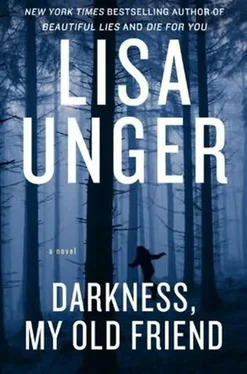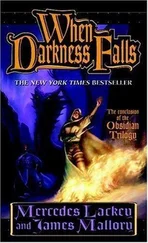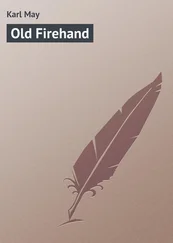“Okay,” said Kellerman. “Here’s what I’ve got.”
“Great,” said Jones. He felt the relief that always came with action.
“Paula Carr hasn’t used her credit cards or made any bank withdrawals in forty-eight hours.” Kellerman paused to issue a hacking cough. The sound of it made Jones cringe.
“Sorry,” Kellerman said. “One interesting thing. I did a little digging and found an account under her maiden name, husband not listed as an account holder. Last week there was a large withdrawal. Ten thousand.”
Jones thought about this, and it made sense. She was planning a flight. She wanted to find Cole’s mother before she left with her kids; that’s why she’d called him. Something had happened to force her hand. Or maybe something worse.
“That’s interesting,” said Jones.
“Looks to me like she wanted to get lost.”
“Maybe.”
“Something else notable. Paula Carr hasn’t made any ATM withdrawals in years. Her paycheck from a small company was direct-deposited into a joint account. But that account only had one ATM card, and that was for the husband. Her credit-card purchases are strictly mom-type charges. I’m talking about grocery and big-box stores, kids’ clothing stores, online book retailers. There’s not a charge on there over a couple hundred dollars.”
“So her husband had her on a leash,” said Jones. “Controlling her spending.”
“I wish I could keep my wife on a leash,” said Kellerman. He started laughing, but the laugh turned into that horrible cough again.
“You all right, man?”
“Ah, got this cough,” Kellerman said. “I’m seeing a doctor on Friday.”
“I’m sure it’s nothing,” said Jones. “Allergies, probably.” The cough sounded bad, rattling and deep.
Controlling the money was a way of controlling the relationship. Jones thought about how Carr had referred to Paula only as “my wife,” how the house was spotless, no pictures, how nervous and apologetic Paula had been throughout the visit. Jones was starting to get the picture. Kevin Carr was all about control.
“If I find anything on her, I’ll give you a call. People get sloppy or careless after a while. Think no one is paying attention. Or they run out of cash.”
“I’d appreciate it.”
“The other woman, Robin O’Conner,” Kellerman went on. “She’s broke. She was recently fired from her job. She’s got five maxed-out cards, about ninety-five dollars and change in her account. She’s been evicted from her apartment, with two months owed in back rent.”
“When was her last charge?”
“She tried to use her card yesterday at the Regal Motel in Chester. It was a charge for twenty dollars and twenty-three cents, and it was declined.”
Chester was about an hour from The Hollows, another small working-class town, but one that hadn’t developed in the same way as The Hollows had. He looked at his watch. He could go out there, try to find Robin O’Conner, as Paula had asked. But why? He didn’t have a client, really. He wasn’t a cop. He wasn’t even a PI. At this point it was costing him money to fulfill his promise to Paula Carr-the drive, the dinner he’d owe Kellerman for these favors-and his buddy could pack it away. Maggie would not approve.
“Want me to keep tabs on her, too?” Kellerman asked.
“I’d appreciate it.”
“I’ll text you if either of them pops.”
They made arrangements to get together for dinner the following week. Once the call had ended, Jones put the car in drive. He almost didn’t realize he was heading to Chester until he’d pulled onto the highway. Why not? he thought. It was the only real lead he had on any of the three missing women. What was he going to do, go home and reflect on the future course of his life, his marriage, all the “work” he had to do on himself? He wasn’t going to do that. He just wasn’t. The very thought of it was suffocating.
As he drove, he found himself wondering what he would need to do to get his private investigator’s license. He wondered, too, if he should start carrying a gun again.
The rumor swirling around the school office was that the police had found human bones up by the Chapel, suspected to be the remains of Marla Holt. At first this news landed softly, like a false whisper in Henry Ivy’s ear. Something that could easily be denied and pushed away. But as the day wore on and the rumor spread and five separate people said to him “Did you hear?” he started to feel as if he were being buried alive under concrete blocks. By the late afternoon, the weight was crushing him. Was she up there? Had she been up there all these years? When he and everyone else had thought the worst of her? Had she been lying rotting in a shallow grave not a mile from where he worked every day? Had he stayed with her that night, as she had wanted him to, would she be alive right now?
All day he went through the motions: morning announcements, going over attendance records, disciplining the usual out-of-control students, chatting with his assistant. And all the while there was this terrible hum in the back of his head. He had plans that night with Bethany Graves. He felt like he was being punished for trying to be happy. There was something cosmic, wasn’t there, that just wouldn’t allow it.
“I can’t go out,” Bethany had told him. “Not with so much happening with Willow. Not with her being so unhappy.”
“I understand,” he’d said, trying to keep the disappointment out of his voice. He figured it was just a polite blow-off.
“But you can come here,” she’d said. “For dinner? Tomorrow night?”
He felt a happy lift in his heart, the lofting of hope. “You don’t think it’s… inappropriate.”
“No,” she’d said. There was a smile in her voice. “I don’t think it’s inappropriate at all. I think it’s fine.”
When he woke up in the morning, he’d felt light and happy. He’d blasted through his 6:00 A.M. workout, had a power breakfast of egg whites and a fruit smoothie, gotten to work early to get a jump on some of his teacher evaluations. But by 9:30, after the office started to fill and people were talking about the rumors, he felt a kind of gray veil of grief and sorrow descend.
What he’d never told them was that he had loved her-in a way. It was not in the way he had loved Maggie Cooper. Once upon a time, he’d had a real hope that Maggie would love him, too. When they were teenagers, he’d imagined that one day their friendship would turn into something more, that one day they’d get married and have children. Of course, that had never happened. But their friendship had endured. And he had taken that as a kind of consolation prize.
He had loved Marla Holt like you love a movie star, never imagining that there could be anything between you. She was older than he was, seemed wise and worldly. And she was so beautiful that he almost didn’t believe she was real. Even her imperfections-the tiny laugh lines at her eyes, the beauty mark on her lower right cheek (her witch’s mole, she’d called it)-only made her more gorgeous. When she spoke to him, he was transfixed by her… by the way her mouth moved, by the way her hands danced to her throat, by the blinking of her eyes.
The night she’d disappeared, they were supposed to jog. He’d called her to ask what time, and she’d said she couldn’t go. That Michael was at a sleepover and she had Cara. Mack would be late at work. But he could come by for a bit, couldn’t he? Just to talk. Because that’s what they did on their jogs. They talked and talked about everything.
At first he’d hesitated, because it seemed inappropriate. But she’d said, Please, Henry. I so look forward to our time together . And he had agreed. He enjoyed their time together, too. He looked forward to being with her, even though he knew he’d never touch her and that she was so far above and beyond him. Every instinct in his body told him not to go, that it was wrong, that it could lead someplace unseemly. But he did go, because she’d asked him to go and she had sounded so sad when she did.
Читать дальше












